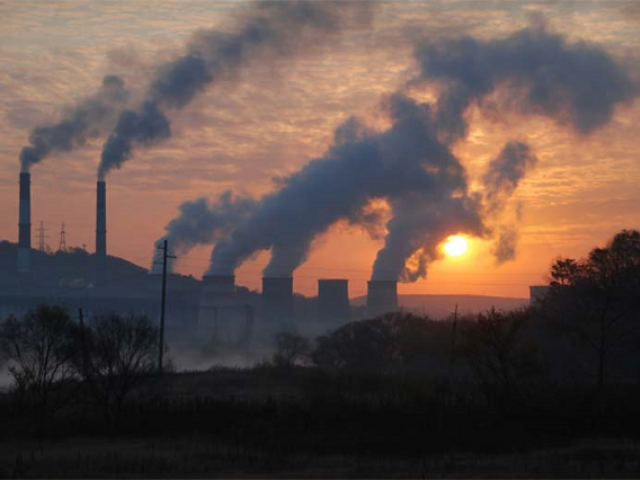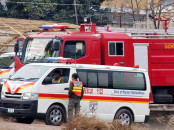‘Climate change can have devastating effects’
Experts say global warming is impacting areas such as health and agriculture

PHOTO: REUTERS
Extreme weather conditions such as rising temperatures, sudden heatwaves and irregular rainfall are major factors behind the spread of diseases, they highlighted. Major socio-communal areas being affected by climate change include human health, civic services, water related infrastructure and hydropower generation.
Punjab Environment Protection Department Deputy Director Misbahul Haq Khan Lodhi said that in Pakistan, increasing temperatures, changing snowmelt patterns, a rise in the sea level and precipitation are exerting an enormous impact on natural resources.
He highlighted that global warming and climate change were causing glaciers in the northern part of the country to melt swiftly which could cause a water shortage by 60%, affecting energy and agriculture sector.
According to the 2018 Global Climate Risk Index, a report released by the non-profit organisation Germanwatch, Pakistan is among the top 10 countries affected by climate change.
Environmentalist Dr Mehmood Khalid Qamar said that environmental hazards were seriously affecting the country’s deltaic area which is likely to expose more than 2.5 million people to water scarcity, food insecurity and rising sea levels.
“Communities residing at sea level are under threat of glacial lake outburst floods which is another major climate-related threat being faced by the country,” he said. Due to a rise in temperatures, mangroves along the country’s coastal regions are vanishing rapidly. As a result, saline water forests are on the verge of extinction, he maintained.
He said temperatures in most mountainous valleys never used to go beyond 30 degrees Celsius during the summer. But now these temperatures are surpassing 40 degrees Celsius, he said.
International Union for Conservation of Nature Country Representative Mehmood Akhtar Cheema said that climate changed poses serious challenges to Pakistan’s social, economic and ecological systems, where a vast majority of the population still depends predominantly on agriculture based rural economies.
He observed that rural areas in Pakistan were particularly hard hit by climate change. Cheema said that various studies showed that steadily rising temperatures are posing a serious threat to the country’s efforts towards achieving sustainable food security.
“We should invest more in remote and barren areas in order to increase forest cover and to involve institutions and students in plantation drives,” he added.
Published in The Express Tribune, June 17th, 2019.



















COMMENTS
Comments are moderated and generally will be posted if they are on-topic and not abusive.
For more information, please see our Comments FAQ